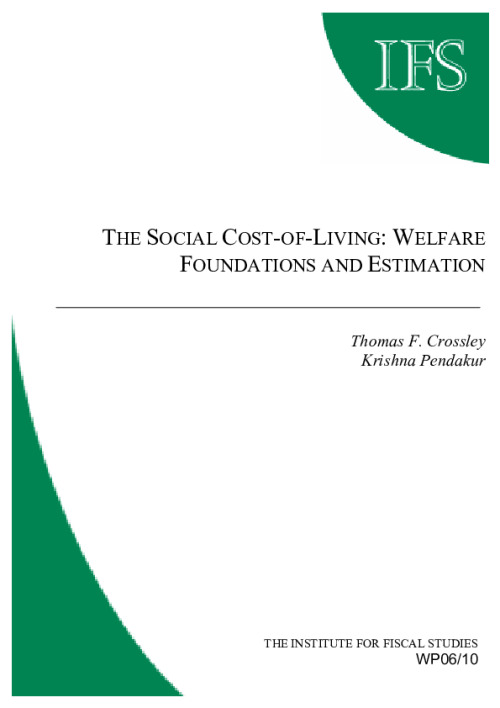We present a new class of social cost-of-living indices and a nonparametric framework for
estimating these and other social cost-of-living indices. Common social cost-of-living indices
can be understood as aggregator functions of approximations of individual cost-of-living
indices. The Consumer Price Index (CPI) is the expenditure-weighted average of first-order
approximations of each individual's cost-of-living index. This is troubling for three reasons.
First, it has not been shown to have a welfare economic foundation for the case where agents
are heterogeneous (as they clearly are.) Second, it uses an expenditure-weighted average
which downweights the experience of poor households relative to rich households. Finally,
it uses only first-order approximations of each individual's cost-of-living index, and thus
ignores substitution effects.
We propose a 'common-scaling' social cost-of-living index, which is defined as the single scaling to everyone's expenditure which holds social welfare constant across a price change. Our approach has an explicit social welfare foundation and allows us to choose the weights on the costs of rich and poor households. We also give a unique solution for the welfare function for the case where the weights are independent of household expenditure. A first order approximation of our social cost-of-living index nests as special cases commonly used indices such as the CPI. We also provide a nonparametric method for estimating second-order approximations (which account for substitution effects).










